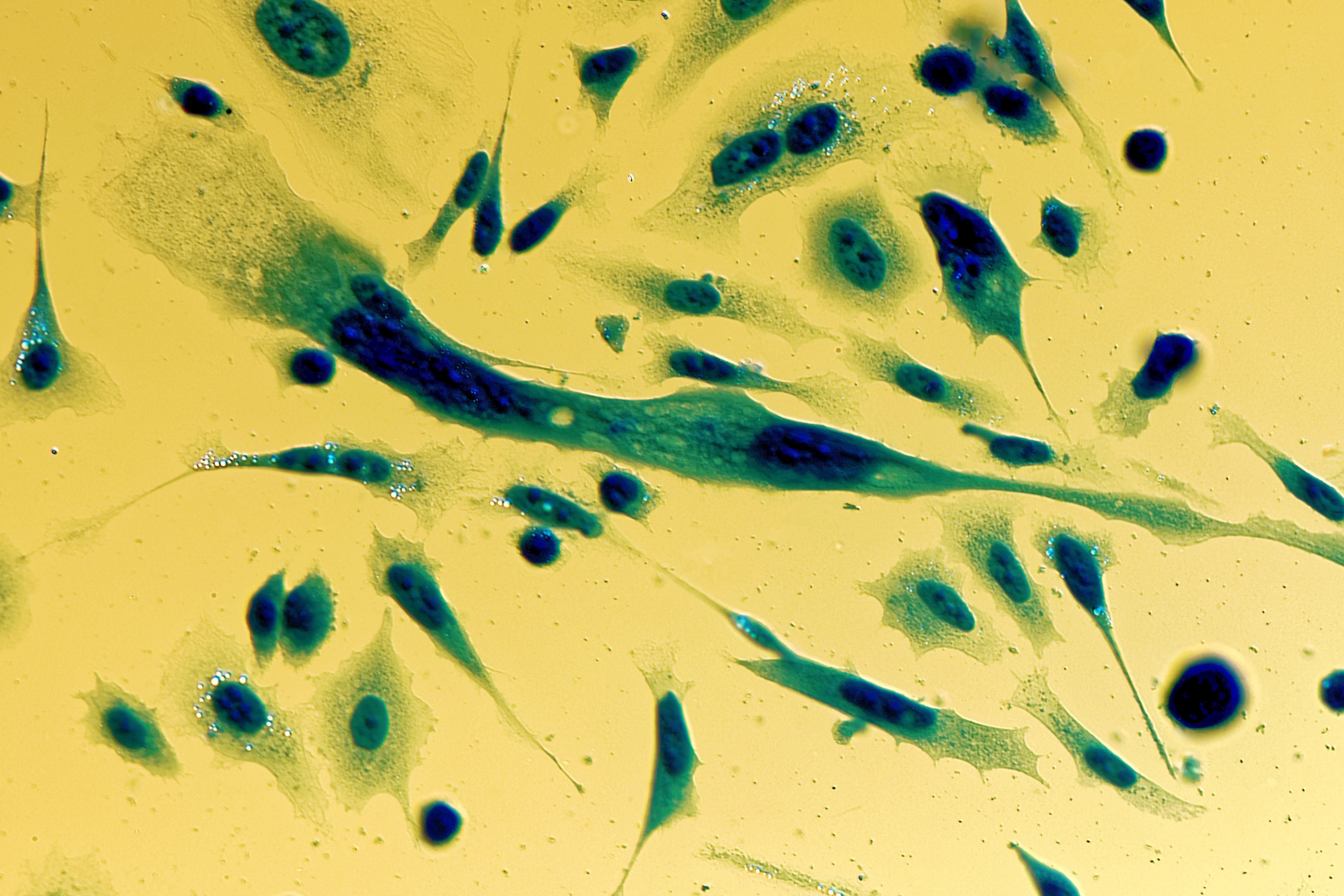New Phase in Prostate Cancer Fight: Cu-SAR-bisPSMA Trial Begins
The first patient in a phase 2 clinical trial evaluating 67Cu-SAR-bisPSMA for patients with metastatic castration-resistant prostate cancer has been dosed.
PC-3 human prostate cancer cells: © heitipaves - stock.adobe.com

The first dose of 67Cu-SAR-bisPSMA has been administered in the phase 2 cohort expansion of the SECuRE trial (NCT04868604), marking the first patient with metastatic castration-resistant prostate cancer (mCRPC) out of a planned 24 to be treated in this phase.1
The initiation of this study follows the completion of the phase 1 dose-escalation portion and was recommended by a safety review committee to proceed to phase 2. In this phase, the copper-based therapeutic radiopharmaceutical 67Cu-SAR-bisPSMA will be administered at a dose of 8 GBq, and the total number of cycles will increase from 4 to 6.
"With the latest protocol amendments ensuring that we are utilizing the most recent advances and knowledge in the radiopharmaceutical space, we continue to be driven by the highest standards of clinical trial management and research,” said Alan Taylor, MD, executive chairperson of Clarity Pharmaceuticals, in a press release.
The newest study protocol also increased the planned number of patients from 14 to the 24, and a subset of patients will be treated with combination therapy. This includes the first patient dosed, who will receive 8 GBq of 67Cu-SAR-bisPSMA in combination with the androgen receptor pathway inhibitor (ARPI) enzalutamide (Xtandi).
The exploration of combination therapies in SECuRE follows positive findings from the phase 2 ENZA-p trial (NCT04419402), which found that adding [177Lu] Lu-PSMA-617 to enzalutamide improved survival and health-related quality of life in patients with high-risk mCRPC.2
SECuRE will also assess 67Cu-SAR-bisPSMA as an earlier line of treatment for mCRPC in the prechemotherapy setting. In the dose-escalation portion of the study, 92% of patients (n = 12) in the prechemotherapy setting had prostate-specific antigen (PSA) reduction greater than 35%. Further, PSA reduction greater than 50% were observed in 61.5% (n = 8) of patients and reduction greater than 80% in 46.2% (n = 6) of patients.
“We are committed to continuously improving our product and took the opportunity to advance our 67Cu-SAR-bisPSMA formulation prior to dosing our first patients in the cohort expansion phase of the trial. The improvements also help us prepare for the large-scale manufacture in a potential phase 3 trial and during commercialization, allowing for room temperature stability with considerable advantages for supply and scalability,” Taylor added in the press release.
About the Phase 2 SECuRE Trial
Two prostate cancer cells in the final stage of cell division: ©PRB ARTS - stock.adobe.com

The phase 2 SECuRE trial is enrolling across 5 locations and plans to assess biodistribution of 67Cu-SAR-bisPSMA, dosimetry, maximum tolerated dose, recommended dose, PSA response, radiographic response, and safety and tolerability.3
Male patients aged 18 years and older with confirmed prostate cancer are eligible for enrollment if they have an ECOG performance status of 0 to 2, a positive 64Cu-SAR-bisPSMA PET or CT scan, progressive metastatic disease following prior androgen deprivation therapy and an ARPI, and adequate organ function. Those with brain metastases, history of small cell or neuroendocrine disease, history of leukemia or myelodysplastic syndrome, or previous treatment with a systemic radionuclide are not eligible for enrollment.
REFERENCES:
1. SECuRE trial update: first patient treated in the phase II cohort expansion. News release. Clarity Pharmaceuticals. April 15, 2024. Accessed April 15, 2024. https://tinyurl.com/2nu52msb
2. Emmett L, Subramaniam S, Crumbaker M, et al. Overall survival and quality of life with [177Lu]Lu-PSMA-617 plus enzalutamide versus enzalutamide alone in metastatic castration-resistant prostate cancer (ENZA-p): secondary outcomes from a multicentre, open-label, randomised, phase 2 trial. Lancet Oncol. 2025 Mar;26(3):291-299. doi:10.1016/S1470-2045(25)00009-9
3. 64Cu-SAR-bisPSMA and 67Cu-SAR-bisPSMA for identification and treatment of PSMA-expressing metastatic castrate resistant prostate cancer (SECuRE). ClinicalTrials.gov. Updated March 27, 2024. Accessed April 15, 2025. https://clinicaltrials.gov/study/NCT04868604
Testosterone Recovery After Prostate Cancer Treatment Suspension: EMBARK Analysis
April 29th 2025The EMBARK analysis showed most men regained testosterone after stopping enzalutamide/leuprolide or placebo/leuprolide for prostate cancer with good PSA response, and recovery was common across age groups.
Read More








